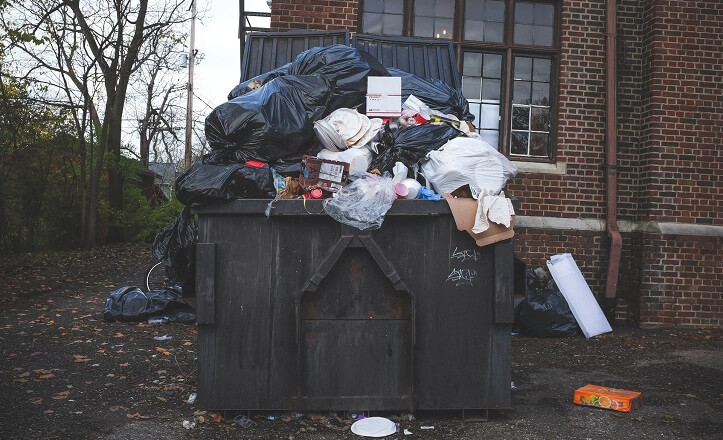Pests such as mosquitoes and cockroaches are hard to remove once they have made a home for themselves on your property. But why would they pick your house? The three main factors that are essential to pests are food, shelter, and water.
If your home provides that, then it would definitely invade the place. Cockroaches living on your premises will not only affect the health of your loved ones but also create an undesirable and unliveable atmosphere.
You may not intentionally want pests living in the house, however, there may be a few habits that may be attracting them. What could they be?
Here are a Few Habits that could be Considered as a Welcome Sign for Pests;
1. Piling Dirty Utensils on the Kitchen Sink All Night
If you are a midnight snack lover, this one is for you! Your midnight snacking routine shouldn’t end without you washing and clearing up the dirty dishes in your sink.
A kitchen sink full of dirty vessels will not only provide cockroaches with leftover food to munch on but it will also lead to them crawling all over your kitchen, which wouldn’t be hygienic and could cause an infection.
To avoid a cockroach infestation or attracting cockroaches, keep your kitchen sink, table and dishes clean and inside the cabinets.
2. Leaving Your Full Trash Bin Uncovered
Rodents and cockroaches are a few pests that love the sight of an uncovered and overflowing trash bin. It not only provides them with a variety of food items, but it also allows them to explore as much as they want! Since mosquitoes are known to spread various diseases, such as Dengue, Malaria, etc. having them flying around your house will only result in a family member getting sick. Keeping your trash bin covered will also prevent any odour problems as well as prevent any of the pests inside the trash bin from escaping and entering your kitchen.
Keep in mind that if a cockroach rummages through your dustbin and then enters your kitchen, covered in dirt and bacteria, and crawls over your utensils, it would make the food and vessels unclean without you even knowing about it.
3. Hanging Your Dirty Clothes on the Bedroom Door for Days
Did you know? Mosquitoes love resting in dirty clothes as they like the human odour and sweat smell. This is why hanging dirty clothes behind your door or leaving your wet or dirty towel could attract more mosquitoes. The more you have around, the higher the chances of you or your family member getting infected.
To prevent getting an infection and a pest infestation, avoid hanging your dirty towel or clothes on your bedroom door or laundry basket and keep away your freshly laundered clothes at once.
4. Stacking away Unused Items at Home
Less clutter is much better! Hoarding old magazines, newspapers, or boxes, will only attract more cockroaches to your house. Cockroaches love hiding among the clutter and munching on cardboard or paper items, this is why if you don’t get rid of the extra clutter, it could lead to an infestation.
Hoarding a lot of items, also provide the perfect hideout for cockroaches, making it difficult for you to see any early signs of an infestation. You can avoid a cockroach infestation by inspecting your storage rooms, attics, and garage every once in a while to check on your stored items and see if there has been any cockroach activity. Get rid of excess clutter as much as you can and for the items that you choose to still keep with you, ensure that you store them securely in sealed boxes.
About the Author: Muzi Tsolakis is the owner of Protech Pest Control, known for their efficient Mosquito Control services and Pest Control treatments in Melbourne.




